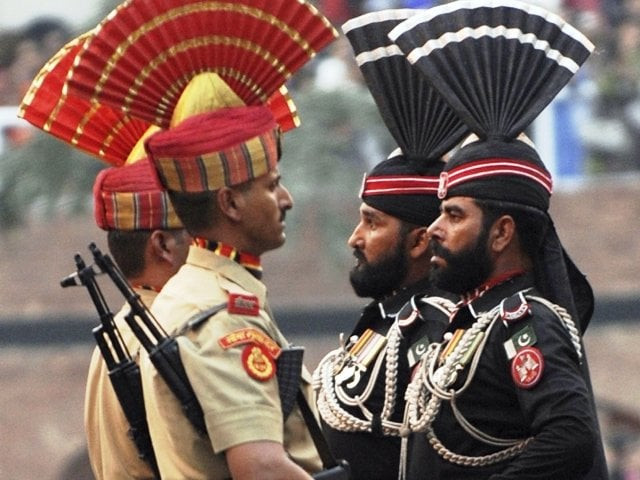Track-II dialogue with Pakistan part of a 'normal exchange'
Indian foreign ministry says New Dehli did not change stated policy on talks with Pakistan

PHOTO: AFP
The foreign ministry of India did not comment on whether New Delhi approved of the dialogue, and said the government had not changed the stated policy on talks with Pakistan.
The Times of India had earlier reported that the track-II dialogue, first held in 1991-1992, had been revived by India and Pakistan.
Pakistan repatriates ailing Indian prisoner on humanitarian grounds
“This is a meeting between two civil societies, this is a meeting which is part of people-to-people exchange... There is nothing new in it,” an Indian official told reporters, responding to questions on the issue.
The original Track-II initiative — the Neemrana Dialogue — received a fresh start with the visit of the group of experts to Islamabad recently. The Indian side was led by former foreign ministry secretary Vivek Katju, while the Pakistani side included former minister Javed Jabbar, among others.
Asked whether the dialogue had the backing of the Indian foreign ministry, Kumar did not give a direct reply, saying it was part of the normal process. He, however, said there was no change in India’s “clear and consistent” policy towards Pakistan.
BJP minister refers to Quaid-e-Azam as 'mahapurush'
“There is no dilution in our position that talks and terror cannot go together,” he said.
Sources in Islamabad, according to PTI, said that experts from two sides discussed a number of issues, including Kashmir, Siachen, Sir Creek, terrorism, and the regional situation. They said that the two sides will present their proposals to their government for consideration.
The Neemrana Dialogue was launched in the early 1990s and included influential former diplomats, military veterans and academics, who had the unofficial backing from the foreign ministries of the two countries.
This article originally appeared in The Times of India












1724319076-0/Untitled-design-(5)1724319076-0-208x130.webp)






COMMENTS
Comments are moderated and generally will be posted if they are on-topic and not abusive.
For more information, please see our Comments FAQ